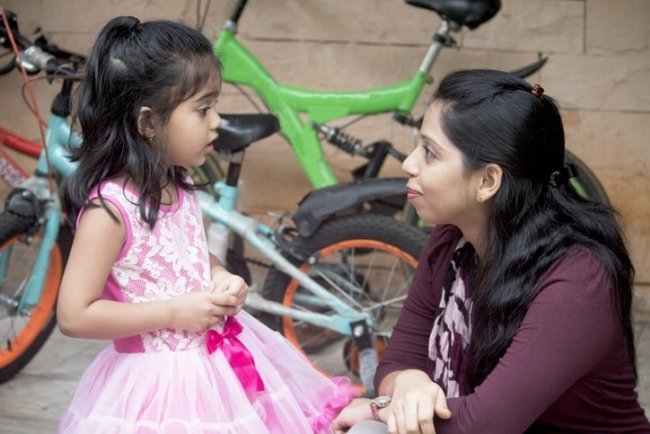Cultural Influences on Parenting Styles: Nurturing the Next Generation
Explore the intricate dance between culture and parenting styles in this comprehensive guide on Cultural Influences on Parenting Styles. Uncover the impact, nuances, and diverse approaches across different societies.

Introduction
Parenting is one of the most important roles we play in our lives. The way parents raise their children has a profound impact on who those children become as adults. However, there is no single "right way" to parent. Cultural beliefs and values shape parenting styles in different parts of the world. In this post, I will explore some of the major cultural influences on parenting and how they can nurture or sometimes challenge the next generation.
Parenting in Individualistic vs Collectivistic Cultures
One of the biggest divides in parenting philosophies exists between individualistic cultures and collectivistic cultures. Individualistic cultures, like those found in Western nations such as the United States, Australia and much of Europe, place a strong emphasis on independence and individual needs/wants. Parenting in these cultures encourages children to develop a strong sense of self, pursue their own interests and make their own choices separate from the larger family unit.
By contrast, collectivistic cultures found in many Asian, African and Latin American societies focus more on interdependence and prioritizing the needs of the family/community over the individual. Parenting in these cultures emphasizes concepts like filial piety, respect for elders, cooperation, conformity to social norms and contribution to the larger family system. Children are taught from a young age that their identity exists within the context of their family relationships rather than as autonomous individuals.
Some examples of how these different philosophies shape parenting styles:
- Individualist parents are more likely to encourage children to freely express their opinions and make independent choices. Collectivist parents may want children to consider family needs first and suppress individual desires when they conflict with social harmony.
- Independence is actively fostered in individualist cultures through encouraging self-care skills from an early age. Collectivist cultures focus more on interdependence and teamwork, so children might rely more on family for tasks.
- Individualist parents provide positive reinforcement for unique accomplishments and talents. Collectivist parents emphasize modesty about one's abilities and prioritize group accomplishments over standing out as individuals.
- Individualist parenting allows for more openly questioning parental authority as children mature. Collectivist parenting styles demand greater obedience, respect and preservation of family hierarchies.
Of course, no culture is perfectly individualistic or collectivistic - elements of both exist everywhere to varying degrees. And modern globalization has led most cultures to incorporate aspects of each model. The key is understanding how strongly cultural values of independence vs. interdependence shape parental expectations and child development priorities in different societies.
Authoritative vs Permissive vs Authoritarian Parenting
Another dimension for understanding cultural variations in parenting involves Baumrind's parenting styles typology that categorizes parental demandingness and responsiveness on a three-point scale:
- Authoritative parenting is high in both demandingness (rule-setting) and responsiveness (warmth/nurturance). It encourages open communication and acknowledges the child's individuality while setting clear expectations. This style is linked to many optimal child outcomes.
- Permissive parenting is low in demandingness but high in responsiveness. It avoids confrontation and imposes few rules/consequences on the child. This approach risks raising children with poor social skills and lack of self-discipline.
- Authoritarian parenting is high in demandingness but low in responsiveness. It demands strict obedience to rules with little explanation, warmth or nurturing. Overuse of this style has been tied to poorer child mental health and behavioral issues.
Research finds that Western individualistic cultures tend to favor authoritative parenting as the ideal, while Eastern collectivistic cultures view permissive parenting more critically but also authoritarian parenting more positively in moderation:
- U.S. and European parents typically aim for authoritative balance of both control and warmth.
- Chinese and South Asian cultures appreciate stricter parenting as enforcing social order and moral development, but not at expense of nurturing parent-child bond.
- Latin American and Mediterranean cultures value warmth and bonding over independent thinking for now but becoming more authoritative as youth individualism grows.
- African American communities tilt more authoritarian on average to combat harsh social realities, though range exists based on class and values.
So one size never fits all cultures. The key is adopting culturally-sensitive approaches that still promote child well-being and development of life skills needed to succeed within larger society in positive ways. Flexible, warm yet responsible parenting tends to fare best cross-culturally.
The Impact of Traditional Gender Roles on Parenting
Deeply ingrained gender role beliefs also impact parenting in culturally specific manners. Traditional masculinity/femininity models shape expectations for how fathers and mothers relate differently to children and each other in varied family systems worldwide. Some general patterns include:
- Patriarchal cultures give fathers roles as emotional/financial providers but distance from daily care duties. Mothers become emotional caretakers and disciplinarians.
- Matrilineal cultures (like parts of India, Africa) prioritize maternal lineage and grandmothers hold more authority than fathers. Fathers still expected to provide necessities.
- Gender-equal Western nations see shared parenting as ideal. But even in these cultures mothers typically spend more time on childcare matters.
- Hispanic/Latino cultures view motherhood as central to femininity where "marianismo" places women on pedestals as self-sacrificing mothers. Fathers act as protectors/providers from outside home.
- Asian families commonly assign fathers duty of enforcing discipline, while mothers model obedience and nurturing. Physical punishment by fathers still accepted more in Confucian societies.
Of course, modern forces like increased female participation in workforces everywhere are altering gender constructs and parental roles gradually across all cultures. The rise of collaborative co-parenting ideals sees people challenging rigid stereotypes to find what works best for their own families. But past traditions still hold influence that parents must thoughtfully navigate.
Religious Influences on Childrearing
Religious beliefs provide moral frameworks guiding child development goals for spiritual well-being in many faith communities. While common values around nurturing empathy, compassion exist across faiths, certain approaches to discipline, schooling and gender training differ greatly based on theology. Consider how some major religions shape parenting:
- Christianity spanning denominations sees parental duty to instill moral virtues, respect, service. Firm Protestant work ethic overlapped with American nationalism. Conservative Mennonite/Amish isolate youth for simplicity, humility.
- Judaism stresses academic rigor, questioning nature as roots of faith. Orthodox traditions separate genders in schooling, social circles to curb distraction from Torah study. All emphasize family, community over individualism.
- Islam instructs spiritual nurturing through daily Quran study, prayer routine. Modesty for girls enforced through dress codes. Strict sharia households emphasize filial obedience, harsh corporal discipline according to some scriptural passages. But wide variations exist by culture, interpretation too.
- -Hinduism advocates non-violence, karma-based ethics. Arranged marriage remains norm to preserve caste order. Educational focus on dharmic responsibilities over freedom still impacts Indian families even as values modernize.
- -Buddhism sees enlightenment as ultimate child rearing aim. Calm household ambience, meditation taught. Non-attachment philosophy tempers materialism, competitiveness in parenting relative to Western norms in Asia.
So religious socialization plays out uniquely based on doctrinal teachings for each faith. Parents must ethically balance spiritual guidance and children's individual quests for reason and self-direction too. An open, caring approach informed by faith's humanist essence usually resonates best cross-culturally.
Cultural Differences in Discipline and Punishment Styles
Attitudes towards discipline, physical punishment and permissiveness vary tremendously by cultural context as well. What is normative childrearing behavior in one society may seem excessively harsh or lax in another due to divergent community standards and parenting philosophies. Some observations:
- Individualistic Western nations widely condemn corporal punishment now due to potential psychological harm. Time-outs, removal of privileges used in its place.
- Collectivistic Asian cultures still accept moderate physical discipline like spanking for disobedience to enforce respect, order. Shamed-based tactics like comparison also common pedagogical tools there.
- Hispanics take permissive approach favoring positive reinforcement over confrontation due to emphasis on familial bonds over outright defiance. Laughter, scolding used before harsher measures.
- Africans Americans experienced harsh physical abuse historically and so both authoritarian and permissive extremes found in community. Middle-class African immigrant parents tend stricter on average.
- Orthodox Jewish communities use stern disciplinarians aiming for respect through fear at times. Reform branches adopt gentler Western approach focused on open dialogue over corporal deterrents.
- Muslim cultures practice strict obedience and modesty rules, especially for daughters according to most interpretations. Severe spanking, hitting unfortunately remains legal domestic sanction in some nations dominated by harsh sharia laws.

So cross-cultural understanding proves vital to not judge certain culturally-endorsed practices as inherently "abusive" while advocating for child protection too. A balance of clear rules, empathy and non-violence usually works best to nurture resilience wherever found.
- Globalization and exposure to diverse cultures through media/travel are causing many traditions to gradually evolve. Younger parents in non-Western nations now balance old ways with modern individualism.
- Socioeconomic status also affects parenting within cultures. Upper/middle class parents worldwide tend towards authoritative style focusing on academic success. Lower classes rely more on physical discipline out of frustration with limited resources.
- Minority immigrant families must determine how strongly to assimilate mainstream parenting of new country versus retain heritage. This creates intergenerational tension between clinging to roots and adapting children to dominant norms.
- Cultural clash happens when non-mainstream parenting clashes with teacher/authority expectations in schools. Strict Asian parents may disagree with perceived coddling of Western teachers. Strict Christian parents reject LGBTQ-inclusive curricula. Understanding is key.
- In individualistic societies, attachment parenting promoting babywearing, co-sleeping, extended breastfeeding has grown popular contrasting with aloof norm. But collectives like Hispanic/Asian families see such as natural, not worthy of labeling movement.
- Indigenous communities worldwide experience ongoing identity struggles preserving tribal wisdom against pressures of colonization. Preserving Native American, Aboriginal Australian practices through immersion fosters cultural continuity.
- Research shows respectful, empathetic parenting resonates internationally as children's basic psychological needs remain quite similar cross-culturally. But gentle discipline requires understanding nuanced cultural differences too without judgment.
FAQs
What's Your Reaction?




















